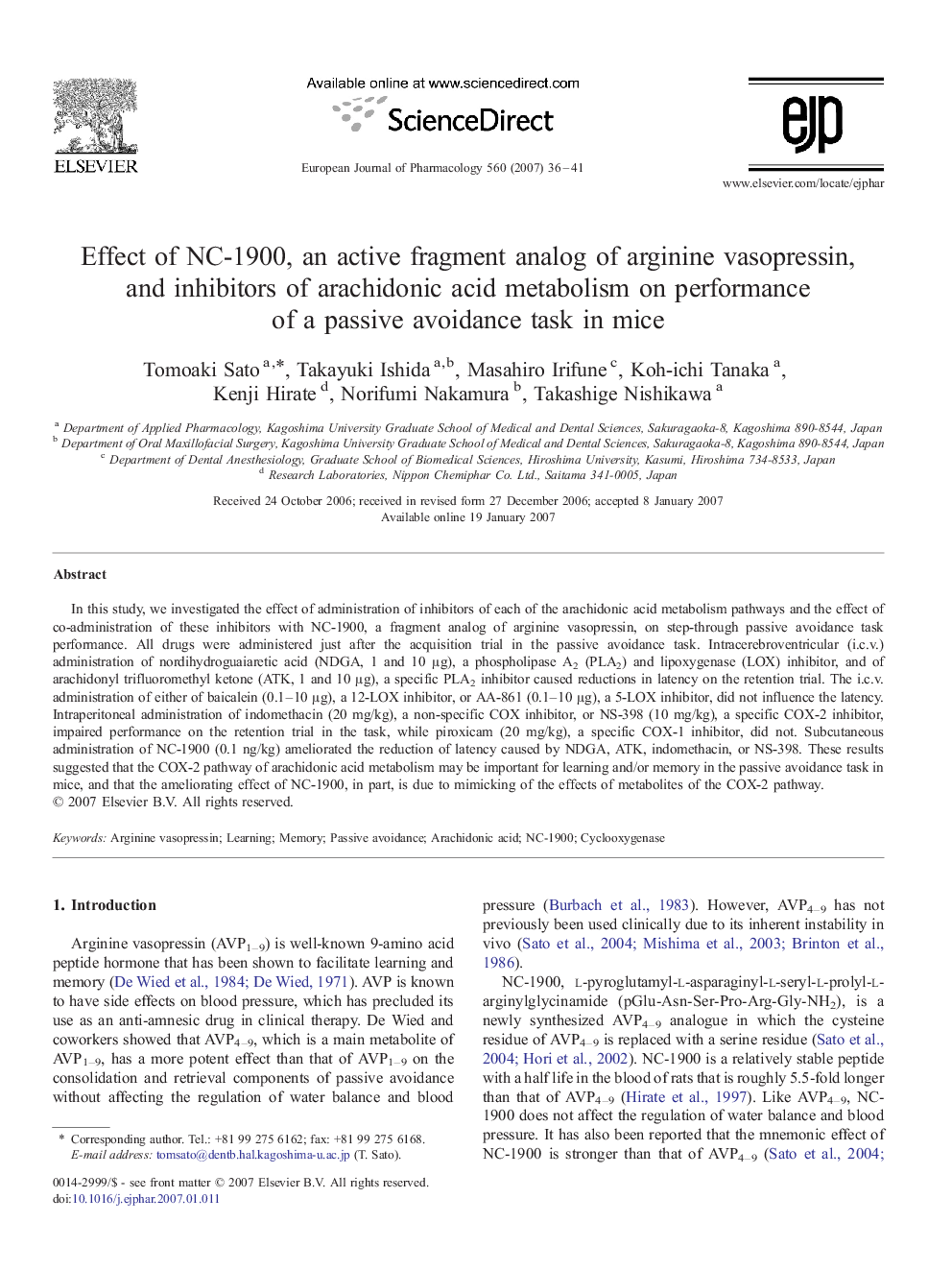| Article ID | Journal | Published Year | Pages | File Type |
|---|---|---|---|---|
| 2536385 | European Journal of Pharmacology | 2007 | 6 Pages |
Abstract
In this study, we investigated the effect of administration of inhibitors of each of the arachidonic acid metabolism pathways and the effect of co-administration of these inhibitors with NC-1900, a fragment analog of arginine vasopressin, on step-through passive avoidance task performance. All drugs were administered just after the acquisition trial in the passive avoidance task. Intracerebroventricular (i.c.v.) administration of nordihydroguaiaretic acid (NDGA, 1 and 10 μg), a phospholipase A2 (PLA2) and lipoxygenase (LOX) inhibitor, and of arachidonyl trifluoromethyl ketone (ATK, 1 and 10 μg), a specific PLA2 inhibitor caused reductions in latency on the retention trial. The i.c.v. administration of either of baicalein (0.1-10 μg), a 12-LOX inhibitor, or AA-861 (0.1-10 μg), a 5-LOX inhibitor, did not influence the latency. Intraperitoneal administration of indomethacin (20 mg/kg), a non-specific COX inhibitor, or NS-398 (10 mg/kg), a specific COX-2 inhibitor, impaired performance on the retention trial in the task, while piroxicam (20 mg/kg), a specific COX-1 inhibitor, did not. Subcutaneous administration of NC-1900 (0.1 ng/kg) ameliorated the reduction of latency caused by NDGA, ATK, indomethacin, or NS-398. These results suggested that the COX-2 pathway of arachidonic acid metabolism may be important for learning and/or memory in the passive avoidance task in mice, and that the ameliorating effect of NC-1900, in part, is due to mimicking of the effects of metabolites of the COX-2 pathway.
Related Topics
Life Sciences
Neuroscience
Cellular and Molecular Neuroscience
Authors
Tomoaki Sato, Takayuki Ishida, Masahiro Irifune, Koh-ichi Tanaka, Kenji Hirate, Norifumi Nakamura, Takashige Nishikawa,
